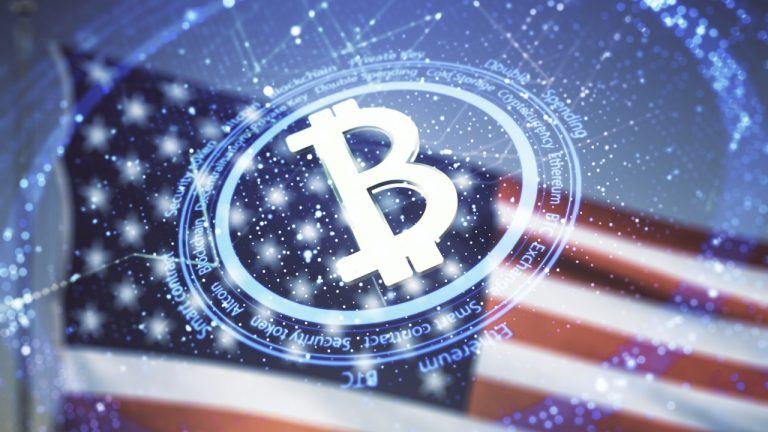
‘Unworkable’ bill to ban blockchain immutability is introduced in Illinois

Florida-based lawyer Drew Hinkes described the bill as “the most unworkable state law” related to blockchain and cryptocurrency that he has ever seen.
A recently introduced Illinois Senate Bill has been ridiculed by the crypto community over its “unworkable” plans to force blockchain miners and validators to do “impossible things” — such as reversing transactions if ordered to do so by a state court.
The Senate Bill was quietly introduced into the Illinois legislature on Feb. 9 by Illinois Senator Robert Peters but appears to have been only recently noticed by Florida-based lawyer Drew Hinkes who discussed the bill in a Twitter post on Feb. 19.
The bill titled the “Digital Property Protection and Law Enforcement Act,” would authorize the courts — upon a valid request from the Attorney General or a State’s Attorney that is made pursuant to the laws of Illinois — to order a blockchain transaction that is executed via a smart contract to be altered or rescinded.
The act would apply to any “blockchain network that processes a blockchain transaction originating in the State.”

Hinkes described the bill as “the most unworkable state law” related to blockchain and cryptocurrency that he has ever seen.
“This is a stunning reverse course for a state that was previously pro -innovation. Instead we now get possibly the most unworkable state law related to #crypto and #blockchain I’ve ever seen,” he said.
The bill states that any blockchain miners and validators may be fined between $5,000-10,000 for each day that they fail to comply with court orders.
While acknowledging the need to implement bills that strengthen consumer protection, Hinkes said it would be “impossible” for miners and validators to comply with the bill proposed by Senator Peters.
SB1887 focuses on consumer protection (this is GOOD). But, the manner in which it seeks to protect consumers is to require #node operators ##miners & #validators to do impossible things, or things that create for themselves new criminal & civil liability at pain of fines/ fees /3
— Drew Hinkes (@propelforward) February 19, 2023
Hinkes was also shocked to see that “no defense” would be available to miners or validators that operated on a blockchain network that “has not adopted reasonable available procedures” to comply with the court orders.
The bill also appears to mandate “any person using a smart contract to deliver goods and services” to include code in the smart contract which can be used to comply with court orders.
“Any person using a smart contract to deliver goods or services in this State shall include smart contract code capable of enforcing court orders regarding the smart contract.”
If you thought that was bad. Get ready to #Illinoize your blockchain! Yes, #Illinois is going to force you to re-write your blockchain- specifically by including smart contract code capable of responding to court orders. And if you don’t, you can be sued /10
— Drew Hinkes (@propelforward) February 19, 2023
Other members of the cryptocurrency community have responded with similar ridicule of the bill proposed by Peters.
Crypto analyst “foobar” noted to his 120,800 Twitter followers on Feb. 19 that court ordered transactions would need to — somehow — be amended “without needing the private key” of the participants, which he considered to be “hilarious.”
this is hilarious, Illinois is proposing a bill that would make miners & validators “respond to a court order by including transactions on the blockchain without needing the private key”
why are you refusing to comply, transfer satoshi’s bitcoin to governor pritzker! off to jail https://t.co/7JcpktWMgH pic.twitter.com/FPKLsFNE3e
— foobar (@0xfoobar) February 19, 2023
Gabriel Shapiro, lawyer and general counsel at investment firm Delphi Labs explained very briefly to his 34,100 Twitter followers on Feb. 19 that the bill would essentially try to ban immutability on blockchains:
TLDR–they are trying to ban immutability https://t.co/HSg00pcFHx
— _gabrielShapir0 (@lex_node) February 19, 2023
Meanwhile, Carla Reyes, assistant professor at Southern Methodist University School of Law in a Feb. 19 tweet, stated that lawmakers should only introduce bills if they understand how the technology works.
While immutability is a common property in blockchains and distributed ledgers, the Peters-sponsored bill explained that such networks lack an enforcement mechanism that can be tapped into by the courts:
“As a result, the cost to enforce legal rights in digital property is often prohibitive such that the property rights cannot be vindicated and the vast majority of blockchain crimes go unpunished.”
Fraud and mistake would be two of the most commonly used cases where Illinois courts may order for a blockchain transaction to the victim or original sender, the bill noted.
The bill also wants to help users recover their assets if they lose their private keys.
Related: What is blockchain technology? How does it work?
While the bill was only introduced on Feb. 9, it will need to be “read” and voted in by three separate committee hearings before being passed on to Illinois Governor Jay Pritzker to officially sign the bill into law.
The first reading took place on the same day it was introduced into the Illinois General Assembly by Peters.
If it is ever passed, the contents of the bill would take effect 30 days after becoming law.
Go to Source
Author: Brayden Lindrea









